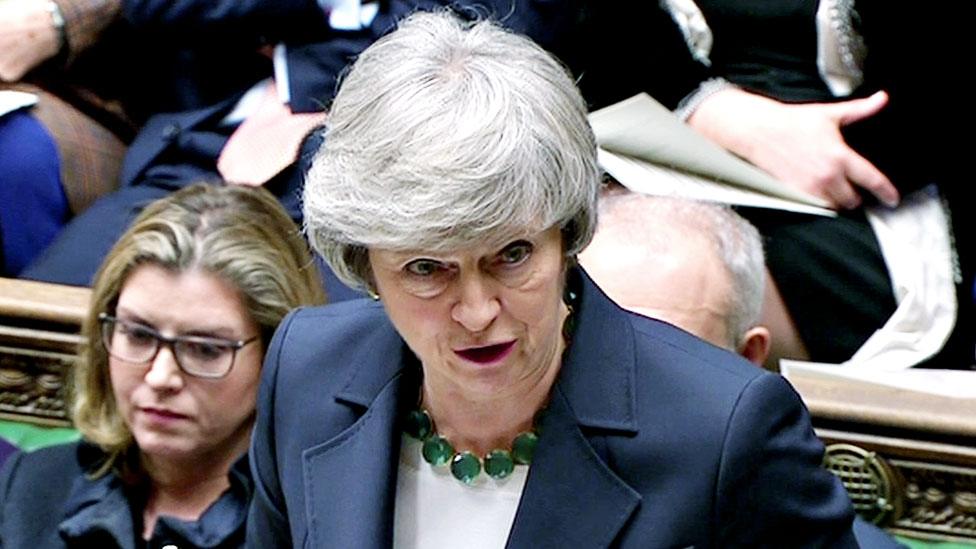Brexit amendments: How MPs tried to change Theresa May's course
- Published
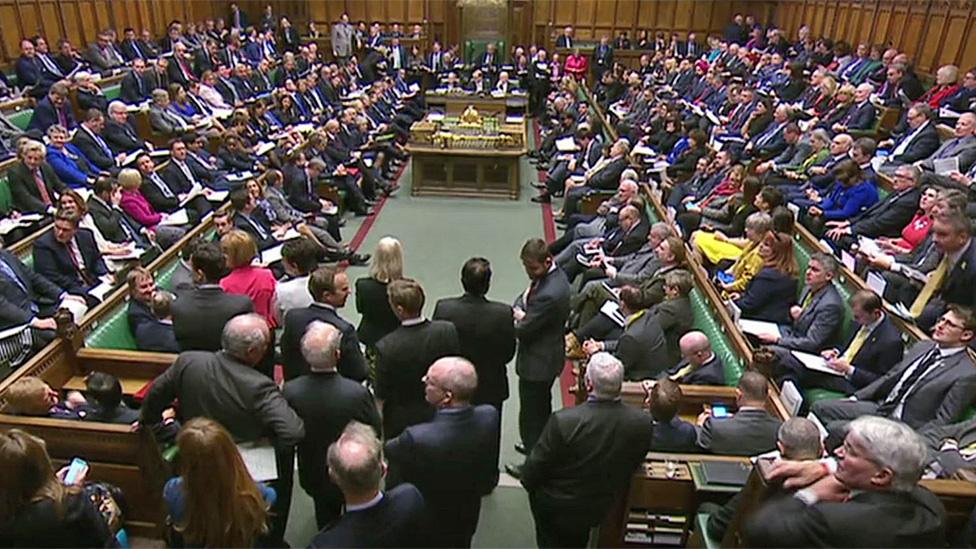
MPs are trying to influence the Brexit process in a number of ways, as Theresa May continues her bid to get the EU to change the deal.
The prime minister has asked MPs to approve a motion on Thursday simply acknowledging that process is ongoing and restating their support for the approach.
Several MPs tabled amendments setting out alternative plans and Commons Speaker John Bercow has selected three to be put to a Commons vote.
Even if they won the backing of a majority of MPs, the proposals would not be binding on the government. However, they could put pressure on Mrs May to change course.
She has adopted proposals from two successful backbench amendments tabled in January.
One asked her to seek alternatives to the "backstop", which aims to prevent the return of customs checkpoints on the Irish border in the event that no trade deal has come into force. The other rejected leaving the EU without a formal exit deal.
The selected proposals are below. Use our guide to Brexit jargon or follow the links for further explanation.
Labour frontbench amendment
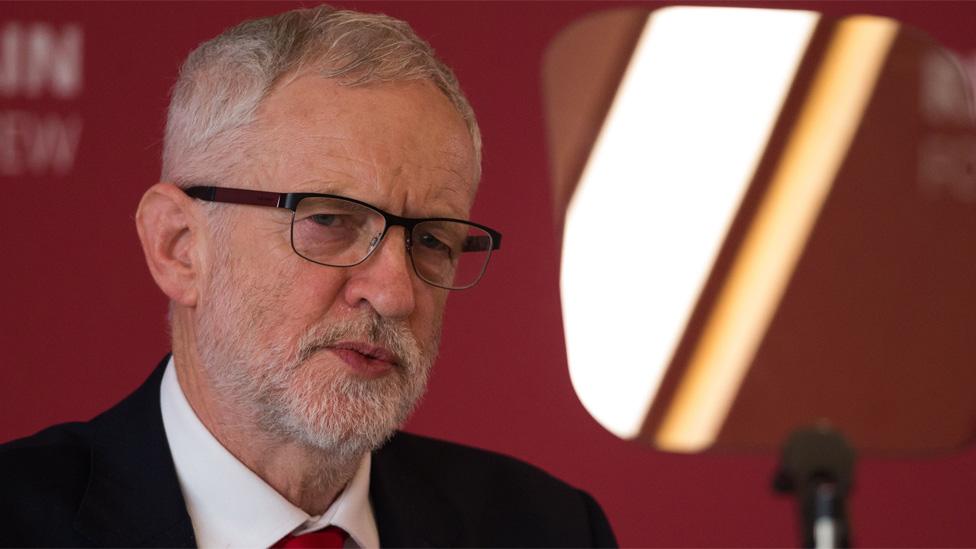
Required the government to either give MPs a vote on the withdrawal agreement and political declaration on future UK-EU relations by 27 February, or make a statement saying there is no longer an agreement in principle with Brussels and so allow MPs to vote on - and amend - its planned next steps.
Labour Leader Jeremy Corbyn's amendment was defeated by 322 votes to 306, giving the government a majority of 16.

SNP amendment
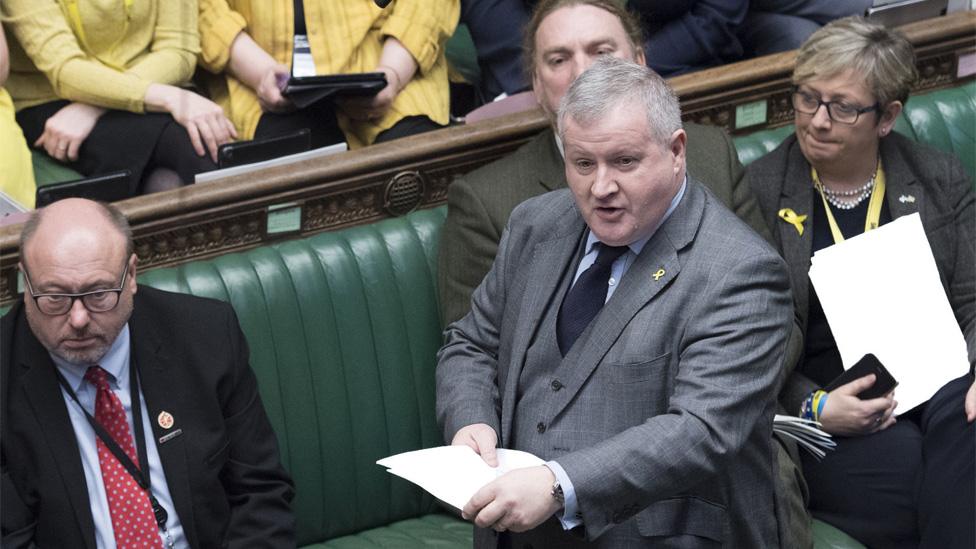
The SNP's Westminster leader Ian Blackford, centre, tabled the amendment on behalf of his party
Sought to postpone the Brexit date by at least three months.
This had the backing of Liberal Democrats, as well as the SNP contingent.
However, most Labour MPs abstained and so the amendment was defeated by 93 votes to 315.

Conservative backbencher Anna Soubry's amendment
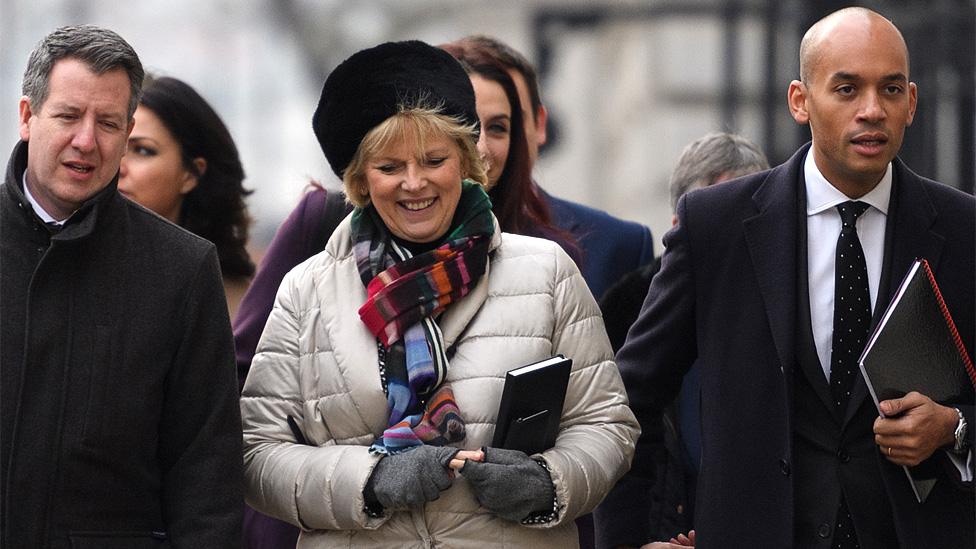
Anna Soubry's amendment had the backing of Labour MPs including Chris Leslie, left, and Chuka Umunna, right
Instructed the government to publish within seven days "the most recent official briefing document relating to business and trade on the implications of a no-deal Brexit presented to cabinet".
This had the backing of some mostly Remain-supporting Labour and Conservative backbenchers.
But Ms Soubry withdrew the amendment after Brexit Minister Chris Heaton-Harris indicated that Cabinet Office Minister David Lidington would meet her and would be publishing the relevant information.
Ms Soubry welcomed the move but said she reserved the right to lay the amendment again at end of February if the government did not publish the documents.
- Published13 February 2019
